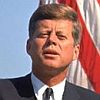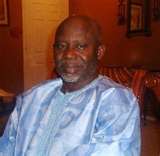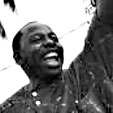 |
|
| Author |
 Topic Topic  |
|
|
Janko
Gambia
1267 Posts |
 Posted - 20 Jun 2010 : 20:58:42 Posted - 20 Jun 2010 : 20:58:42



|
Democracy and State subsidy to political parties
State subsidy to political parties is important for a level field of play, democracy, fair elections and national security. (if not already in place)The ethical implications of alternative sources of party funds are only valid if there is such a state funding system in place. Without it, it is unethical to regulate alternative sources of party funds, hence that would not only jeopardise democracy but also risk national security.
Why
Having a party funding system would provide an ethical ground for establishing and protecting democracy. The question of restricting or regulating party funding should be harmonized with a state funding system. With a state subsidy in place the necessity of a control instance, “audit mechanism” would not be seen as punitive but as taking national security seriously. If the state, for the sake of fair play and democracy puts the burden of running and maintaining political parties on the taxpayer, then it is consequent that the state scrutinise their financial status i.e. sources, expenditure and priorities.
How
For example in Sweden, the state subsidies to political parties consist partly of financing the party and support for maintaining party headquarters and activities. The Cabinet subsidies is only awarded to parties in parliament, while the party subsidies are distributed to all parties that received more than 2.5 percent of the votes in parliamentary elections and the size depends on the election results.
Herbert E. Alexander listed the following dates when direct public subsidies were introduced or when legislation for such payments was enacted in a number of countries:
COUNTRY YEAR
Costa Rica 1954
Argentina 1955
WGermany 1959
Austria 1963
France 1965
Sweden 1966
Finland 1967
|
Clean your house before pointing a finger ... Never be moved by delirious Well-wishers in their ecstasy |
|
|
turk

USA
3356 Posts |
 Posted - 20 Jun 2010 : 22:04:22 Posted - 20 Jun 2010 : 22:04:22



|
quote:
Without it, it is unethical to regulate alternative sources of party funds, hence that would not only jeopardise democracy but also risk national security.
How is the national security at risk with regulation of alternative funding?
|
diaspora! Too many Chiefs and Very Few Indians.
Halifa Salah: PDOIS is however realistic. It is fully aware that the Gambian voters are yet to reach a level of political consciousness that they rely on to vote on the basis of Principles, policies and programmes and practices. |
 |
|
|
Janko
Gambia
1267 Posts |
 Posted - 20 Jun 2010 : 22:49:02 Posted - 20 Jun 2010 : 22:49:02



|
turk,
your position in the issue is a good example |
Clean your house before pointing a finger ... Never be moved by delirious Well-wishers in their ecstasy |
 |
|
|
turk

USA
3356 Posts |
 Posted - 20 Jun 2010 : 23:09:44 Posted - 20 Jun 2010 : 23:09:44



|
| Sorry, I did not understand. Can you elaborate? |
diaspora! Too many Chiefs and Very Few Indians.
Halifa Salah: PDOIS is however realistic. It is fully aware that the Gambian voters are yet to reach a level of political consciousness that they rely on to vote on the basis of Principles, policies and programmes and practices. |
 |
|
|
Karamba

United Kingdom
3820 Posts |
 Posted - 20 Jun 2010 : 23:21:29 Posted - 20 Jun 2010 : 23:21:29


|
The invasion and continued imposing of gun power in Gambia by Yaya Jammeh and his AFPRC gang remain the biggest security threat to the nation.
Those who part with their money in day light, announced it for the whole world to know are not hiding.
How much gun is Yaya Jammeh hiding? Who is he prepared to fight? Is that weapon power set in to defend circulation of drugs?
Any security-alerted person will keep worrying more about Yaya and guns than genuine concerned persons donating to genuine group of law-abiding persons.
Janko, by advanicing the issue of "democracy and state subsidy to political parties" in Gambia, you need to factor in the current levels of unfairness when it comes to using public media as vehicle for political messaging, for a start.
Yaya Jammeh is so biased that he takes full monopoly of everything. That includes public radio and TV in Gambia. Soon it becomes treason to announce opposition views over national radio so long as Yaya Jammeh weighs in.
May look a typical opposing opinion, this however is the hard fact of life in Gambia under Jammeh.
Let the subsidity start with fair use of public media resources. |
Karamba |
 |
|
|
Janko
Gambia
1267 Posts |
 Posted - 21 Jun 2010 : 00:21:36 Posted - 21 Jun 2010 : 00:21:36



|
Karamba,
your concern is genuine.
I think a state subsidy will help the parties to at least have funds to pay for air time and cover other marketing or advertisement costs. Secondly, ruling parties all over the world seem to be more financially able to cover their campaign costs and if that is due to the fact that they have a bigger share of the state subsidy because they are bigger is unclear, but it seems so. As the saying goes “halve a loaf is better than none”, a state subsidy would be a good start.
Below is an extract from the Elections Decree; how air time and other mass medial exposures are regulated. It seems as these are “claim rights” meaning one can act or refrain from acting, like most political rights.
ELECTIONS DECREE, (DECREE 78 OF 1996)
(c) Use of Radio and Television Air time on radio and TV 93.
(1) The Commission shall, during an election campaign period, ensure that equal time is given to each candidate and national party on the public radio and television.
(2) The Commission shall, in compliance with subsection (1), determine the time to be allocated to each candidate and political party per day or such other period as the Commission may consider reasonable, taking into account the number of candidates and political parties making a request under subsection (3). (Page 75)
Rates of air time 95. (1) Every radio station and television station, whether public or private shall, within seven days of a declaration being made under section 85, prepare and present to the Commission the rates they intend to charge for air time for candidates and political parties.
(2) Upon receipt of the rates, the Commission shall, if it considers it reasonable so to do, enter into negotiations with the persons concerned in the management of the radio stations and television stations for purposes of
(a) finalising the rates; and
(b) ensuring fairness in the distribution of air time.
… (Page 76)
|
Clean your house before pointing a finger ... Never be moved by delirious Well-wishers in their ecstasy |
 |
|
|
Santanfara

3460 Posts |
 Posted - 21 Jun 2010 : 14:12:31 Posted - 21 Jun 2010 : 14:12:31



|
| Thanks Janko for this educative topic. I think our guys at Gainako should allow Janko develop this conversation further for news paper dialogue. The tyrants wish total control and their well-wishers too try to cement the unfairness Karamba alluded to. |
Surah- Ar-Rum 30-22
"And among His signs is the creation of heavens and the earth, and the difference of your languages and colours. verily, in that are indeed signs for men of sound knowledge." Qu'ran
www.suntoumana.blogspot.com |
 |
|
|
sab

United Kingdom
912 Posts |
 Posted - 21 Jun 2010 : 17:03:17 Posted - 21 Jun 2010 : 17:03:17


|
quote:
(Janko)Below is an extract from the Elections Decree; how air time and other mass medial exposures are regulated. It seems as these are “claim rights” meaning one can act or refrain from acting, like most political rights.
See BELOW:
This is the Report of the Commonwealth Observer Group which was
present for the Presidential Election in The Gambia, held on 22 September2006.
http://www.thecommonwealth.org/Shared_ASP_Files/UploadedFiles/C6A2FCB0-A6E5-4389-B264-16E54DD62F84_COGReportGambiaElection2006.pdf
MEDIA MONITORING FINDINGS
The IEC contracted an independent consultant to monitor media coverage of the electoral process. The media monitored were: GRTS TV and GRTS Radio; the Daily Observer, The Point, and Forayaa newspapers; and West Coast FM and Kids with Talent FM radio stations.
Some of the general findings of the IEC contracted Media Monitoring Unit conducted from 5-15 September 2006 (see Annex Thirteen) were that:
• political rallies regulated access on GRTS TV showed a clear advantage to APRC;
• GRTS TV did not broadcast the IEC political platform regulated access programmes, at least at a convenient hour;
• newscasts on GRTS TV gave overwhelming precedence to APRC, but also mentioned UDP and NADD;
• newscasts on GRTS Radio were more equitable between APRC and NADD, but did not mention UDP;
• private radio stations did not carry a minimum five minutes coverage of the election, as required by the Elections decree;
• there was no direct negative portrayal (in context and presentation) on GRTS radio and television;
• the print media was intensely covering the candidates’ campaigns.
The Group noted that private radio stations did not adequately report on the campaign, but covered other social and entertainment programmes. Some media analysts told the Group that “politics and elections were dangerous to cover" and that they instead chose to cover “safe subjects.”
GRTS Television gave overwhelmingly favourable coverage to the APRC party throughout the campaign period, especially during the Prime News hour at 8.00 pm. This finding was corroborated by the Group from a sample of the newscasts that were watched. In many cases newscasts were about the APRC party, resident Jammeh and his activities on the “Dialogue with the People” tour.
It was found that GRTS Radio did not meet its commitment to broadcast coverage as required by the IEC regulation. This station has the widest reach of audience in The Gambia and could have enabled voters to receive information about the campaigns by the various political parties.
CONCLUSION
The Group concluded that media in The Gambia did not provide fair, accurate, and comprehensive information to enable citizens to make informed and intelligent political decisions and that would have given citizens the freedom to express divergent views.
Those yardsticks that amount to “free and fair” democratic practices of press freedom did not fully prevail during this campaign period.
Isn't the above what Halifa Sallah said all along?
Sorry I could not get it to copy & paste correctly...but I am sure u will find the complete reading from the website interesting.
sab.
|
The world would be a poorer place if it was peopled by children whose parents risked nothing in the cause of social justice, for fear of personal loss. (Joe Slovo - African revolutionary) |
Edited by - sab on 21 Jun 2010 17:24:42 |
 |
|
|
Janko
Gambia
1267 Posts |
 Posted - 21 Jun 2010 : 18:54:57 Posted - 21 Jun 2010 : 18:54:57



|
Thanks, Sab
interesting information, hence airtime is not free; the state subsidy to parties would make positive difference. With that kind of subsidy parties that do not have information outlets can establish one - like “Foroyaa”. But without a state subsidy it would be very difficult for parties to buy airtime or facilitate other means of getting their messages out.
The IEC must be commended for contracting an independent consultant to monitor media coverage of the electoral process.
|
Clean your house before pointing a finger ... Never be moved by delirious Well-wishers in their ecstasy |
 |
|
|
Moe

USA
2326 Posts |
 Posted - 22 Jun 2010 : 03:36:42 Posted - 22 Jun 2010 : 03:36:42


|
As you provided all the scenarios and the need for a state subsidy I would just provide a link to further bolster your point.
http://www.nec.go.kr/nec_2009/english/fund/fund01/20100119/1_1258.html
|
I am Jebel Musa better yet rock of Gibraltar,either or,still a stronghold and a Pillar commanding direction
The GPU wants Me Hunted Down for what I don't know ..... |
 |
|
|
kayjatta

2978 Posts |
 Posted - 22 Jun 2010 : 07:32:31 Posted - 22 Jun 2010 : 07:32:31


|
I personally think subsidizing political parties should be strictly limited to campaign finance and it should be optional.
Political parties and candidates that opt for public (govt.)financing must apply for it and agree to a strict protocol of spending caps and accountability. Bigger parties (and candidates)like the UDP (with a world bank in U.K) may opt out of the public option and the restrictions that come with it. By opting out, they could then spend unlimited amount of money on their campaign for elected office.
All political parties should foot their own administrative and other costs.
But again in the Gambia of today, this system will not even work. Instead political parties and candidates relying on govt. subsidy will become vulnerable to govt. sabotage, manipulation, and outright denial of funds at the time when it is needed most.
Govt. subsidy or public financing of poliitcal campaign appears to work best in places where democracy is entrenched and a free and vibrant civil society exists. That is not the Gambia of today! |
Edited by - kayjatta on 22 Jun 2010 07:35:35 |
 |
|
|
Janko
Gambia
1267 Posts |
 Posted - 22 Jun 2010 : 21:38:28 Posted - 22 Jun 2010 : 21:38:28



|
Thanks, Moe,
for adding the Korean perspective
Kay,
the way to democracy is not straight and smooth, it meanders through thorny and sometimes bumpy roads and there is no possibility for a jumpstart.
By starting somewhere we create the possibility to be like "places where democracy is entrenched and a free and vibrant civil society exists".
Yes, it is not easy nor has it been and it shall never be easy to build a solid foundation for democracy to prosper and flourish. It requires, hard, hard work that needs lots of time and tons of perseverance, that’s what it takes.
|
Clean your house before pointing a finger ... Never be moved by delirious Well-wishers in their ecstasy |
 |
|
| |
 Topic Topic  |
|
|
|
| Bantaba in Cyberspace |
© 2005-2024 Nijii |
 |
|
|

